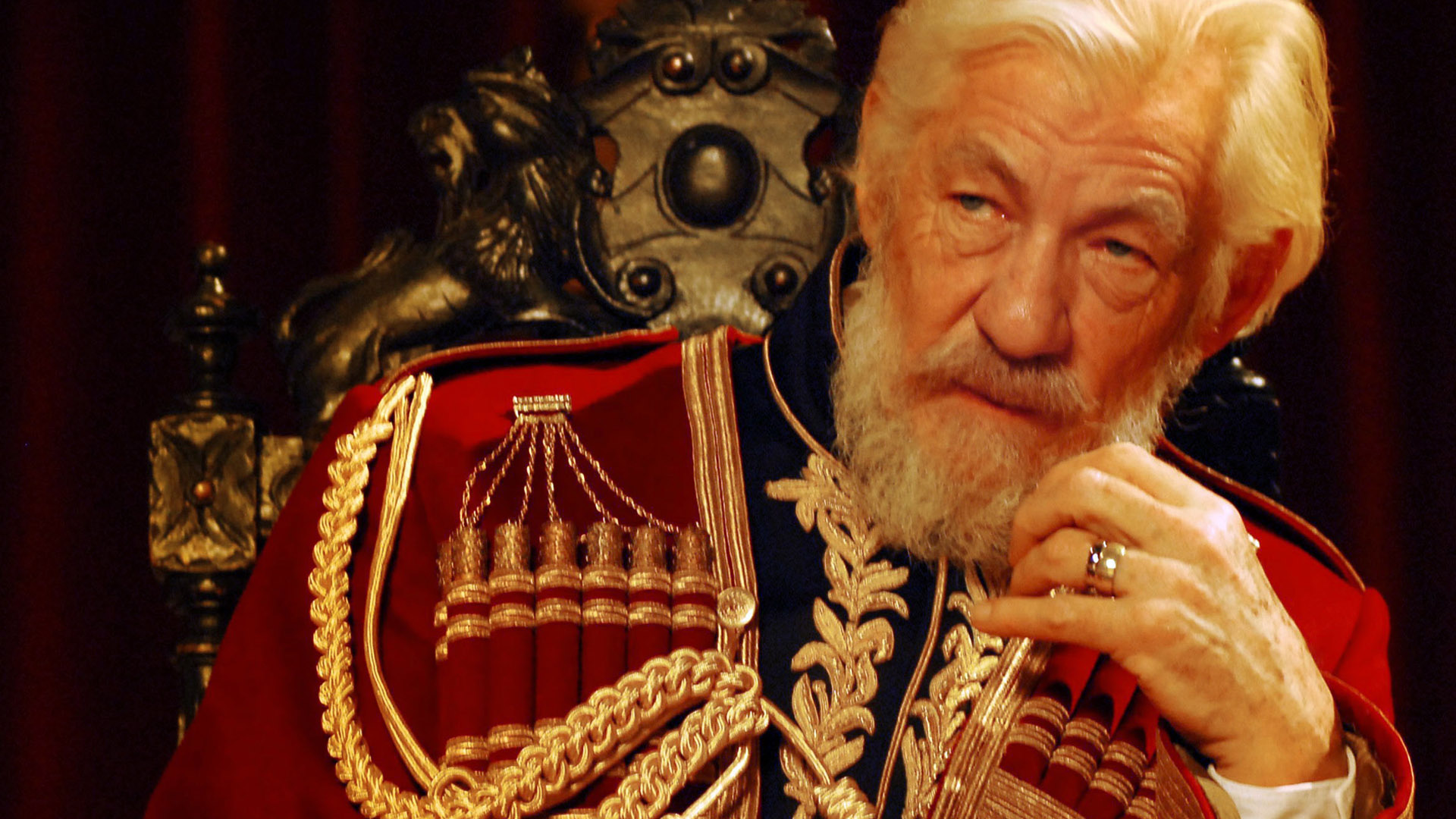Chichester Festival Theatre’s 283 person capacity Minerva Theatre, a stage-less studio theatre, seems a strange and slightly underwhelming location for the theatrical and onscreen powerhouse Sir Ian McKellen to perform. After graces the stages on the West End and Broadway, and starring in Beauty and the Beast, The Hobbit trilogy and The X-Men series in recent years, this move to a more intimate environment was one of the many elements that made this performance so special. This was not your usual occurrence of celebrity theatre; it was not commercial, there were no audience members sneakily attempting to record the ‘real-life’ Ian McKellen a mere seven metres from their seats – this was pure, high quality, thoughtful theatre.
While McKellen was the selling point of Jonathan Munby’s King Lear, he was no better than any other cast member. This was well and truly a performance by a company. From the largest characters of Lear himself (McKellen) to those on the periphery of the main action, each performance was executed sincerely and powerfully. Patrick Robinson’s embodiment of the Duke of Cornwall particularly brought life to a character who often performs acts integral to the plot as a mere formality – I believed his words more than any performance of the role I have witnessed.
Performed in the round, it was a performance that allowed all audience members a point of vantage. There was a sense of inclusion that no ticket, despite its value, was worth performing to more than another. Inclusivity was a permanent theme throughout this meticulous production. Set amongst the British monarchy with powerful symbols of the subtext of our own society (such as only the women kneeling before the king, raising a hand at the mention of gods and a dichotomously charming but aggressive power figure), class was a prominent motivator for many of the play’s actions.
Never has a Kent understood Lear more than Cusack
This preoccupation was perhaps most significant with Edmund (Damien Molony), wearing a tuxedo when his counterparts wore the uniforms and accessories of royalty and military. It was clear he was not officially a part of their world. Perhaps this led to the decision to have Edmund kill the Fool (Phil Daniels): a character cherished by Lear but presented as a caricature how we as a society perceive the mentally ill, unstable or disordered to look, dressed as an outcast or oddity of societal norms through bottle-top spectacles and ill-fitting clothes. We are forced to question why this outsider Fool is worthier of inclusion than Edmund, an illegitimate member of the aristocracy?
However, it was Sinéade Cusack’s Kent who defied all these structures completely. If anyone had questioned whether a woman could play this role of masculine council then they were proved wrong by her sensitive yet strong performance. Never has a Kent understood Lear more than Cusack, straddling the boundary between a sharp professional and a hardy homeless figure, she performed the role to its every potential.
Sold-out and tickets only available as returns, this play deserves every credit it receives.
Rose Crees
(Image courtesy of Simon Farrell)

